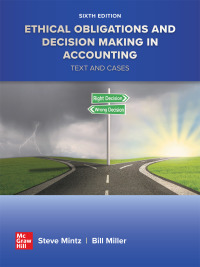Question
Auditing employee compensation and benefits is crucial for ensuring that organizations comply with applicable laws and regulations, accurately record expenses, and maintain internal controls over
Auditing employee compensation and benefits is crucial for ensuring that organizations comply with applicable laws and regulations, accurately record expenses, and maintain internal controls over payroll processes. Employee compensation and benefits typically include salaries, wages, bonuses, incentives, retirement plans, healthcare benefits, and other forms of remuneration provided to employees.
Key Audit Procedures:
Testing Payroll Controls:
Review of Payroll Policies and Procedures: Auditors review the organization's payroll policies and procedures to understand how employee compensation and benefits are determined, processed, and recorded.
Testing of Internal Controls: Auditors test the effectiveness of internal controls over payroll processes, including segregation of duties, authorization of payroll transactions, and review and approval procedures.
Verification of Payroll Expenses:
Review of Payroll Records: Auditors examine payroll records, including timesheets, attendance records, and payroll registers, to verify the accuracy and completeness of payroll expenses.
Confirmation of Payroll Liabilities: Auditors confirm payroll liabilities with third parties, such as payroll service providers or tax authorities, to ensure that payroll taxes and other obligations are accurately reported and paid.
Testing of Employee Benefits:
Review of Benefit Plans: Auditors review employee benefit plans, such as retirement plans, healthcare benefits, and stock option plans, to ensure compliance with plan documents and regulatory requirements.
Verification of Benefit Accruals: Auditors verify the accuracy of benefit accruals and contributions by reconciling employee records with plan documents and third-party statements.
Compliance Testing:
Testing of Regulatory Compliance: Auditors perform compliance testing to ensure that employee compensation and benefits comply with applicable laws and regulations, including minimum wage laws, overtime regulations, and tax requirements.
Review of Employment Contracts: Auditors review employment contracts and agreements to verify that compensation arrangements are consistent with contractual obligations and employment terms.
Objective Question:
Based on the audit procedures for employee compensation and benefits, what is the audit procedure involves verifying the accuracy and completeness of payroll expenses by examining timesheets, attendance records, and payroll registers?
Step by Step Solution
There are 3 Steps involved in it
Step: 1
The audit procedure that involves verifying the accuracy and completeness of payroll expenses by examining timesheets attendance records and payroll r...
Get Instant Access to Expert-Tailored Solutions
See step-by-step solutions with expert insights and AI powered tools for academic success
Step: 2

Step: 3

Ace Your Homework with AI
Get the answers you need in no time with our AI-driven, step-by-step assistance
Get Started


